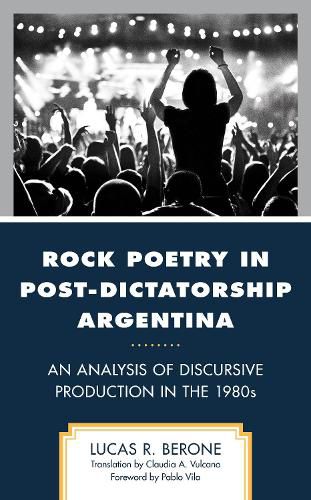Readings Newsletter
Become a Readings Member to make your shopping experience even easier.
Sign in or sign up for free!
You’re not far away from qualifying for FREE standard shipping within Australia
You’ve qualified for FREE standard shipping within Australia
The cart is loading…






This book is a historical and discursive study of rock poetry produced in Argentina, during the "transition to democracy", in the eighties. Lucas R. Berone analyzes the lyrics and albums of a heterogeneous group of Argentine rock artists and bands, who began their career at that time, with the purpose of demonstrating the emergence and functioning of a new grammar of discursive production, which he terms the "grammar of the incognitus (or hidden) subject". This grammar is, when compared to the traditional "counterculture" rock discourse, a very specific and distinct way of elaborating the enunciative relationship between the artist and his audience. The author asserts that the new discursive grammar, focused on the singularity of the present and the "self," will produce the last important revolution in the tradition of the so-called "rock nacional"; motivating critical responses in the leaders of the movement.
$9.00 standard shipping within Australia
FREE standard shipping within Australia for orders over $100.00
Express & International shipping calculated at checkout
This book is a historical and discursive study of rock poetry produced in Argentina, during the "transition to democracy", in the eighties. Lucas R. Berone analyzes the lyrics and albums of a heterogeneous group of Argentine rock artists and bands, who began their career at that time, with the purpose of demonstrating the emergence and functioning of a new grammar of discursive production, which he terms the "grammar of the incognitus (or hidden) subject". This grammar is, when compared to the traditional "counterculture" rock discourse, a very specific and distinct way of elaborating the enunciative relationship between the artist and his audience. The author asserts that the new discursive grammar, focused on the singularity of the present and the "self," will produce the last important revolution in the tradition of the so-called "rock nacional"; motivating critical responses in the leaders of the movement.